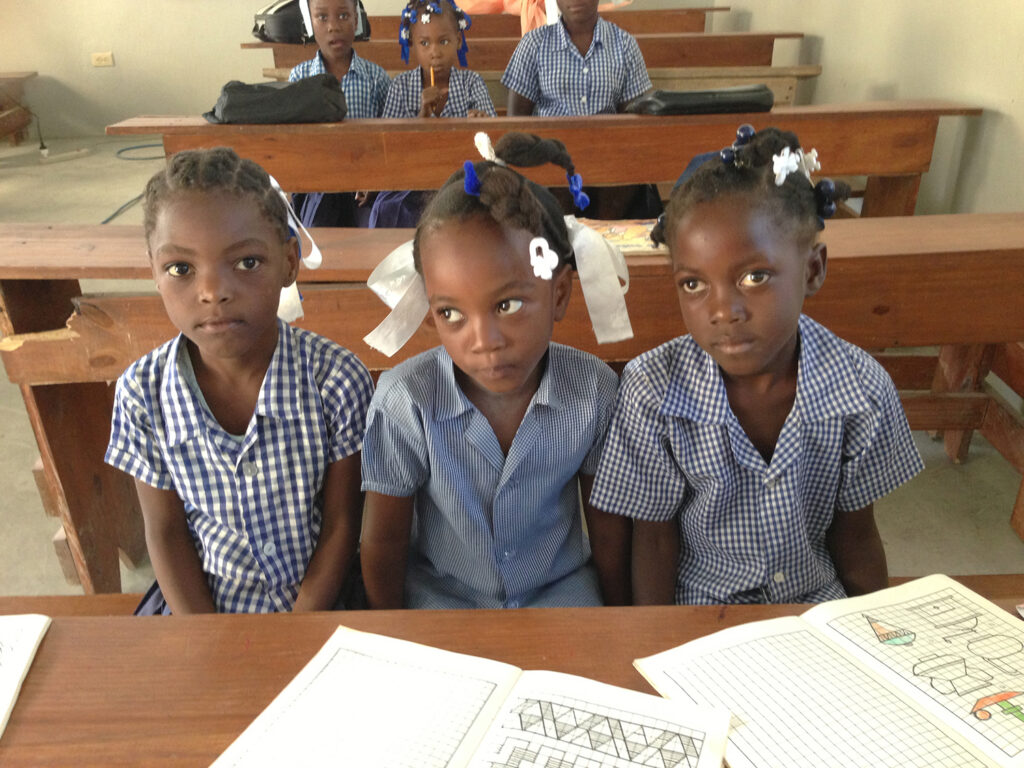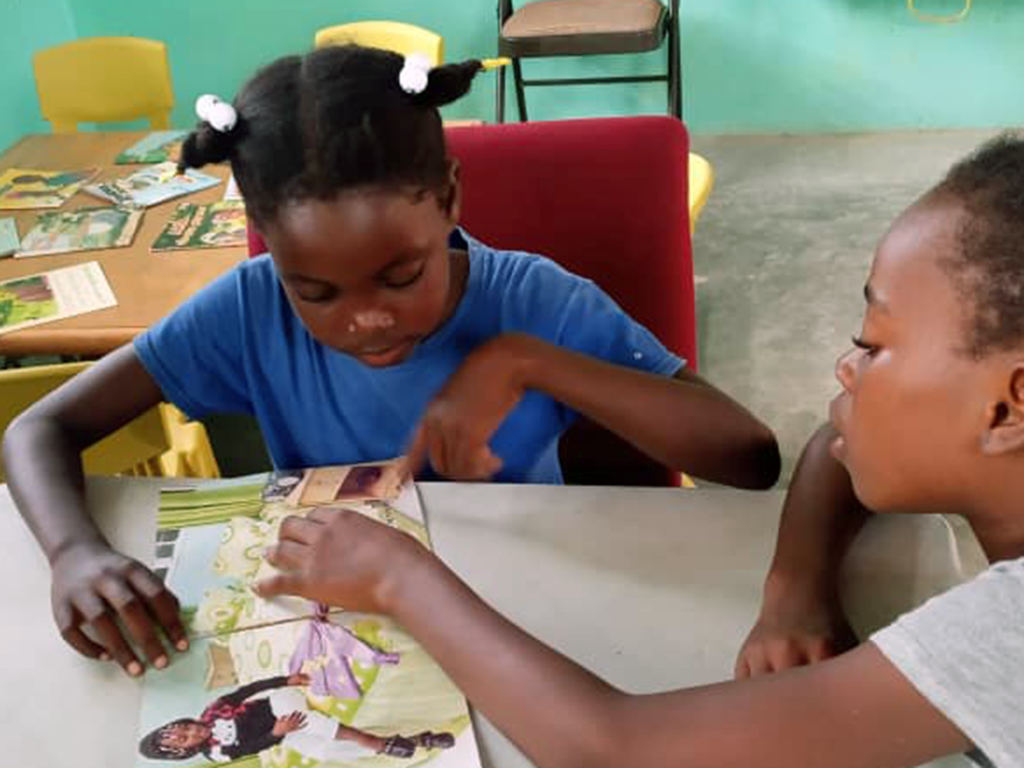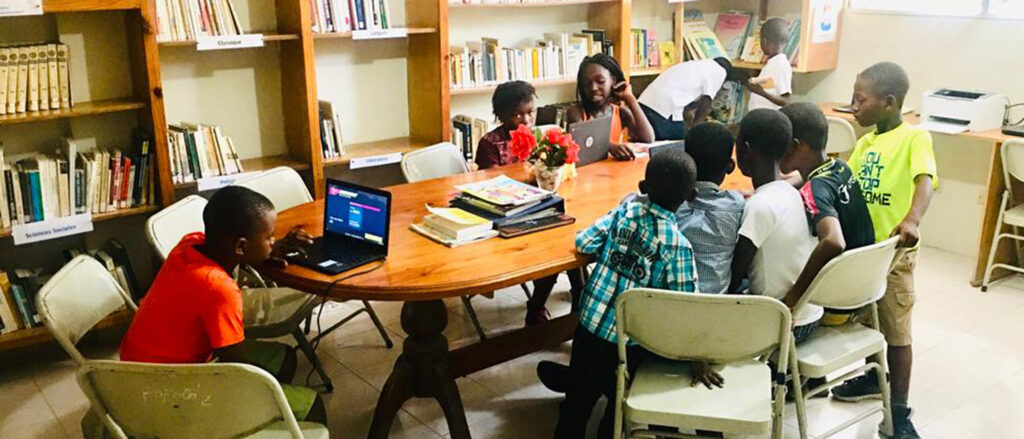
History of PILH
In September 2021, we received designation as a federal 501(c)(3) nonprofit, with EIN Number 87-0904773, and began our work. Transitioning to an independent nonprofit immediately improved our ability to attract interested, diversely talented people, pay a Haitian consultant team member, and begin better fundraising for increased project requests.
For the 11 previous years, we acted as a Rotary Charities all-volunteer committee focusing on underserved village library development in Haiti’s Central Plateau and in the Artibonite. Until 2019, we regularly sent volunteers, donating 5000+ French and Kreyòl books, K-3 to K-5 early literacy teachers’ training, and library workers’ management information. Between 2016-2021, a PILH graphic artist volunteer developed a lovely Kreyòl PILH alphabet chart. With authors from an Australian Rotary Club, and with a Haitian team of a coordinator, illustrators and translators, we co-published 6 Kreyòl “easy-reader” books. We supplied and trained 98 schools with charts and books. Fiscal support during this time was provided by Rotary Clubs, nonprofit Haitian Education & Production Initiatives (HEPI), 3 religious denominations, and individual donations.

A milestone with national educational impact started off 2022 when Haiti’s new Minister of Education, Nesmy Manigat, announced that beginning in September 2022, Kreyòl, the Haitian Mother Tongue, would be the language of instruction for kindergarten and primary education, replacing French which would be introduced later than the early primary years. Since all our materials and accompanying training are in Kreyòl, our premise that Kreyòl should be solely taught to the youngest learners was officially governmentally decreed.
In February 2022, at the request of the Methodist Community Library [Bibliyotèk Kominotè Metodis] in Duplan (Quest), PILH began a project to mentor its library workers and modernize it with recent quality early literacy Kreyòl books, materials, and technology. With only a few handfuls of certified librarians in Haiti, in this centrally located site, we plan with collaborators someday to transform the building into a training facility to further educate and advocate for more library workers.
